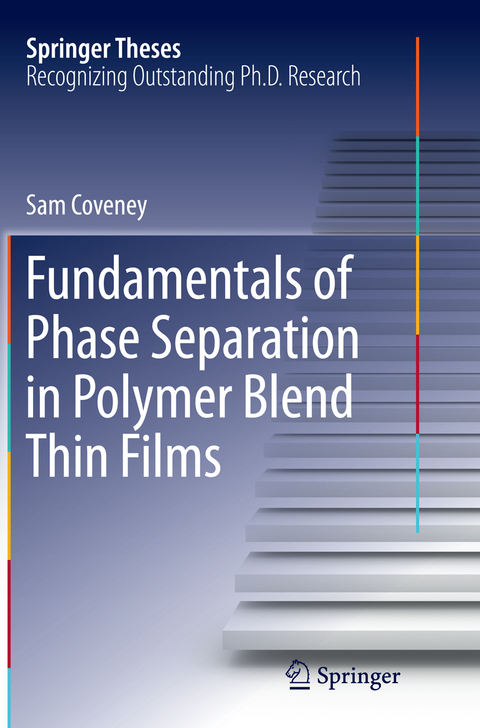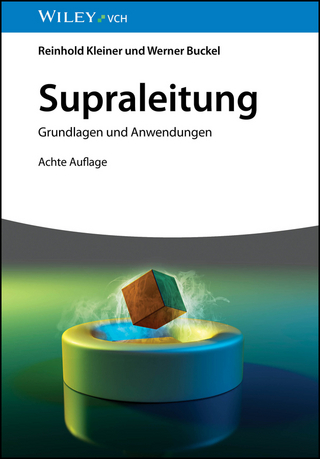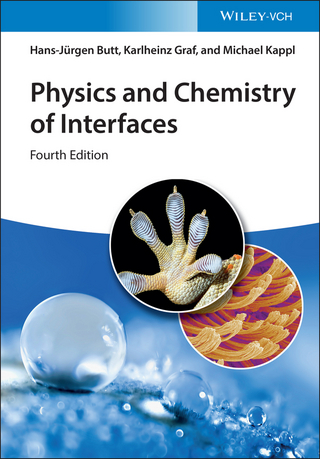
Fundamentals of Phase Separation in Polymer Blend Thin Films
Springer International Publishing (Verlag)
978-3-319-37015-6 (ISBN)
This work sheds new light on fundamental aspects of phase separation in polymer-blend thin films. A key feature underlying the theoretical models is the unification of one-dimensional thermodynamic phase equilibria with film evolution phenomena in two- and three dimensions. Initially, an established 'phase portrait' method, useful for visualising and calculating phase equilibria of polymer-blend films, is generalised to systems without convenient simplifying symmetries. Thermodynamic equilibria alone are then used to explain a film roughening mechanism in which laterally coexisting phases can have different depths in order to minimise free energy. The phase portraits are then utilised to demonstrate that simulations of lateral phase separation via a transient wetting layer, which conform very well with experiments, can be satisfactorily explained by 1D phase equilibria and a 'surface bifurcation' mechanism. Lastly, a novel 3D model of coupled phase separation and dewetting is developed, which demonstrates that surface roughening shadows phase separation in thin films.
Development of Theory for Bulk Polymer-Blend Systems.- Development of Theory for Polymer-Blend Thin Films.- Hamiltonian Phase Portraits for Polymer-Blend Thin Films.- Lateral Phase Separation via Surface Bifurcation.- Coupled Surface Roughening and Phase Separation.
| Erscheinungsdatum | 20.10.2016 |
|---|---|
| Reihe/Serie | Springer Theses |
| Zusatzinfo | XVI, 171 p. 60 illus., 11 illus. in color. |
| Verlagsort | Cham |
| Sprache | englisch |
| Maße | 155 x 235 mm |
| Themenwelt | Naturwissenschaften ► Physik / Astronomie ► Atom- / Kern- / Molekularphysik |
| Naturwissenschaften ► Physik / Astronomie ► Festkörperphysik | |
| Schlagworte | 3D Dewetting Model • Condensed matter physics (liquid state and solid s • Dewetting Coupled to Phase Separation • Diffusion Simulations of Polymer Films • Hamiltonian Phase Portraits • Materials Science • Phase Equilibria of Polymer Films • Phase Portraits of Polymer Films • Phase Separation in Polymer-blend Thin Films • Phase Transitions and Multiphase Systems • Physics • Physics and Astronomy • polymer chemistry • Polymer sciences • Roughening of Polymer-blend Thin Films • Surface and Interface Science, Thin Films • Surface chemistry and adsorption • Surfaces and Interfaces, Thin Films • thermodynamics • Thermodynamics and heat • Thermodynamics of Polymer Films • Thin Film Morphology |
| ISBN-10 | 3-319-37015-4 / 3319370154 |
| ISBN-13 | 978-3-319-37015-6 / 9783319370156 |
| Zustand | Neuware |
| Informationen gemäß Produktsicherheitsverordnung (GPSR) | |
| Haben Sie eine Frage zum Produkt? |
aus dem Bereich


